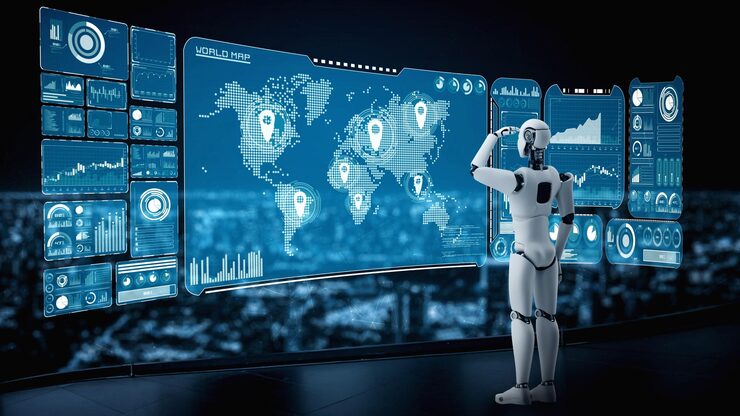An AI development company in Berlin is playing a key role in transforming businesses across industries. By integrating artificial intelligence solutions, these companies help organizations automate workflows, enhance decision-making, and deliver personalized experiences to customers.
With the expertise of an AI developer in Berlin, businesses can leverage predictive analytics, machine learning models, and intelligent automation to gain a competitive edge in today’s fast-paced market.
Why is AI so hot in Berlin right now?
Well, the city’s always had a thing for innovation, and lately, that’s kicked into overdrive. Here’s what’s driving the rush:
- Automation that wipes out repetitive tasks, so people spend less time clicking and more time thinking
- Predictive insights that turn raw data into real decisions
- Personalized experiences that keep customers coming back
- Smoother operations, thanks to better resource management
- Fresh ideas and products powered by AI
AI development companies in Berlin don’t just sell off-the-shelf tools—they build custom solutions that fit each business like a glove.
What do these companies actually do? Here’s a look:
- Predictive Analytics
They help you see what’s coming, whether it’s market trends or customer habits, so you can act fast. - Intelligent Automation
They take the grunt work out of your day—less human error, more time for strategy. - Customer Experience Enhancement
Think chatbots that actually help, virtual assistants that remember your preferences, and recommendation engines that get it right. - Custom AI Solutions
They build AI workflows and apps from scratch, tailored to what your business actually needs. - System Integration
They make sure your new AI tools play nice with your existing systems—ERP, CRM, you name it.
So, what’s in it for Berlin businesses?
- Work gets done faster and smarter
- Decisions are based on data, not guesswork
- Customers stick around because they feel understood
- AI setups that grow as you do
- A real edge in a city that’s always pushing the envelope
Why partner with AI experts in Berlin?
Simple: you get a full strategy, not just a patchwork of tools. They’ll build solutions that match your goals, fit with your current systems, train your team, and keep things running smoothly long after launch.
If you want to dig deeper, Read full guide on AI adoption in European enterprises
FAQs
- Why is AI adoption taking off in Berlin?
Because businesses want to work smarter, make better decisions, and offer standout customer experiences—they’re not waiting around. - What services do Berlin AI development companies offer?
Predictive analytics, smart automation, custom solutions, and system integration. - Does AI really improve efficiency?
Definitely. It cuts manual work, boosts accuracy, and gives you the data you need to move faster. - Why hire an AI developer in Berlin?
You get experts who design, build, and fine-tune AI to fit your business perfectly. - Is AI scalable for growing companies?
Absolutely. Berlin’s AI companies build systems that keep up with you, no matter how fast you grow.




